Member Profile: James Wisler of Wisler Plumbing & Air
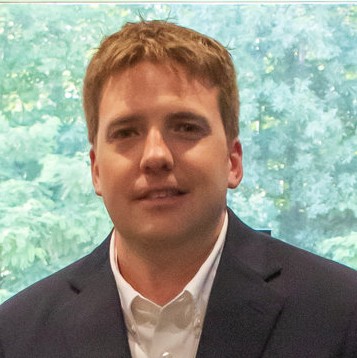
Q: Where did you grow up, and tell us a little about yourself.
I grew up near Roanoke, VA, with three siblings. My father founded Wisler Plumbing, Heating, Cooling, and Electric in 1986, so I spent my childhood immersed in our family’s startup business, either riding along with my father or helping my mom with household chores and administrative tasks. I attended Franklin County public schools through 9th grade and then transitioned to homeschooling, giving me early exposure to business operations and professional development. I married my high school sweetheart, and we have three wonderful children. Our Christian faith is central to our family and guides all aspects of our lives. After graduation, I attended Patrick Henry Community College.
Q: Please tell us about your journey to becoming a CEO.
From a young age, I began leading teams, often learning through trial and error. Valuing personal growth, I’ve had many influential leadership mentors and experiences over the years. At 22, I became the general manager at Wisler, and by 29, I stepped into the role of President and co-owner alongside my brother. Today, we continue striving to build and lead one of the best companies in our industry.
Q: How are you promoting leadership development at Wisler?
We prioritize identifying, hiring, and developing future leaders internally. Our strategies include personalized leadership development plans, tuition reimbursement, and both internal and external training opportunities. Additionally, our current leadership team dedicates one day each month to collaborative learning and professional growth.
Q: Are you working on any new business ideas?
Currently, our primary focus is on enhancing efficiency, increasing automation, and continuously improving the value we deliver to our customers. Many smaller, innovative ideas are emerging around these core objectives.
Q: What books are you reading? Podcasts you’re listening to? Other impactful media?
Currently, I’m reading “The Gap and the Gain” by Dan Sullivan, “Teamwork” by Natalie Dawson, and “Raising Men” by Eric Davis. Each of these books has offered valuable insights that impact both my leadership and personal life.
Q: When you’re not leading your business, what do you like to do?
I deeply enjoy spending quality time with my family and engaging in conservation projects that improve local habitats. These activities provide balance and fulfillment outside of work.
Q: Tell us how you’re involved in the community.
My family is actively involved in our church community and partners with several local organizations, including The Boys and Girls Club of Southwest Virginia. We regularly participate in community events, often distributing free water and goodies at family-oriented gatherings each month.
Q: Since you’ve been a member of VACEOs, how have you grown as a CEO?
Being a member of VACEOs has significantly expanded my network of Virginia-based relationships and provided opportunities to connect with other local CEOs whom I might not have otherwise encountered. The organization consistently offers high-quality learning experiences that have contributed positively to my growth as a leader.
Q: What are you looking forward to this spring/summer?
After navigating a period of transition and filling some leadership roles in our business, I’m looking forward to reclaiming some personal bandwidth. I plan to dedicate this time to advancing our business development projects and enjoying meaningful family moments this summer once school concludes.
Member Profile: Catina Jones of ICON Realty Group, LLC
Q: Where did you grow up and tell us a little about yourself.
A: I am a proud native of Richmond, originally from Highland Park. I later moved to Henrico County, where I graduated from Henrico High School.
Q: Please tell us about your journey to become a CEO.
A: My journey to becoming a CEO started with my dad, who was an entrepreneur. He owned several businesses before he found his true calling in the home security industry. He always taught me the importance of building something that no one could take away- something that would create a lasting financial and personal growth. His belief in the power of owning your own business was a huge influence on me, and it inspired me to take that leap myself.
Q: How are you promoting leadership development at ICON Realty Group?
A: At ICON Realty Group, we focus on growing leadership from within the company. Every member of our leadership team started as an agent here, and each one brought their own unique skills to the table. I’ve always made it a priority to identify those strengths early and help coach people toward leadership roles. By promoting from within, we create a more cohesive and aligned team, which I believe is key to our long-term success and our ability to create believers, demonstrators, and supporters of our culture.
Q: Are you working on any new business ideas?
A: Yes, we’re currently exploring our next phase of growth. We’re looking into expanding to new territories, possibly opening more locations. We’re also considering branching into development and offering business coaching services for new brokers. We want to keep pushing the boundaries of what we can offer while staying true to our core values.
Q: Are there any national/business authors that you follow? What is it about them or their message that resonates with you?
A: I’m currently reading Positioned for Growth by Cory Moseley, who is an award-winning business growth speaker, consultant, and coach. Cory specializes in helping small businesses develop effective growth strategies. He’s also a member of the Advisory Council for our brokerage, so I’ve had the privilege of learning from him firsthand. The concept of growth is something that we’re actively focused on at ICON Realty Group, and Positioned for Growth has been a valuable resource. It offers a comprehensive blueprint for businesses at any stage, with practical, actionable advice that can be implemented right away. The strategies in the book are timely for us as we navigate the exciting (and challenging) process of scaling our business.
Q: When you are not leading ICON Realty Group, what do you like to do?
A: When I’m not at work, you’ll probably find me on a golf course. My husband and I love to travel and play at some of the most beautiful courses around the world. Golf, for me, is more than just a hobby- it’s a great way to network, build relationships, and keep my strategic thinking sharp. The sport has a lot in common with business: it’s all about planning, practice, adaptability, and sometimes, taking a few risks.
Q: You attended our Fall Leaders Conference with your team. Do you or your team have a takeaway from the experience?
A: The Fall Leaders Conference was a great experience for our team, and we walked away with a lot of useful insights. One thing we’ve been working on is improving communication, particularly in meetings. The session on identifying personality and communication styles was especially helpful. We’ve been using phrases like, “I’d love to hear more about that” to encourage open dialogue, and it’s already making a big difference in how we work together.
Q: Tell us how you are involved in the community.
A: Community involvement is something I’m very passionate about. I currently serve on the Board of Directors for The Doorways, which helps provide housing for families whose loved ones are receiving long-term care at VCU Health. I’ve also served on the board for the Virginia Breast Cancer Foundation. At ICON Realty Group, we partner with nonprofit builders who focus on providing affordable housing for first-time homebuyers. Giving back is a big part of who we are, both as a company and as individuals.
Q: Since you’ve been a member of VACEOs, how have you grown as a CEO?
A: I have found significant value in my membership. The luncheons are all relevant to current industry and market conditions and always extremely informative. They give real-world insights into the challenges that we face as business owners. I’ve gained value from my forum and being able to learn from other successful owners. Most rewarding has been having a safe place to be vulnerable and transparent regarding challenges that we experience as business owners.
I’ve learned so much from my fellow members- hearing their stories, sharing experiences, and having a space where I can be open and vulnerable about the challenges I’m facing. It’s made me a stronger, more well-rounded CEO.
VACEOs Member Profile: Philip O’Connor
Thanks to Phil O’Connor, Managing Partner of SPARK Product Development, for answering our many questions!
Q: Tell us about your first job after college, and your professional journey.
A: I attended Radford University and majored in Political Science. I had grand plans to attend law school and become an attorney; the universe had other plans. My first job out of college was working for Checkered Flag Motor Car Company in Virginia Beach selling MINI Coopers. It was a wildly important and impactful opportunity to learn about myself, sales and how to overcome objections.
From there, I worked for SunTrust Bank in Norfolk and then Hampton before making my eventual move to Richmond, starting a job in recruiting with Aerotek. It was at Aerotek where I found my passion in working with engineers in the manufacturing industry. It was fascinating to work with engineers from undergrad to my father’s age. The most interesting part of the job was getting to visit all the manufacturing facilities in Central Virginia and getting a true understanding of just how critical the industry is to the region. While I get excited to drive around industrial parks near airports and guess what’s being made in all the warehouses (Oreos and hummus for example), my wife prefers that we just keep moving and find the nearest parking space so we can make our flight.
Q: Who inspired you to become an entrepreneur?
A: Often during my professional career I would look at the entrepreneurs I worked with and ask myself, “Why can’t I do that?”
But if I really think about it, it’s my mother and father. While my father worked a steady career with Dominion, his example of working hard to achieve professional success and the ability to support a family stuck with me. My mother, on the other hand, was always hustling and doing her own thing. She started a business hosting craft classes at our house for other parents and their children. When my sister and I were a little older, probably middle school, she started “Christal’s Home and Garden” cleaning people’s homes and doing landscaping. Most of her clients were in the neighborhood and that meant she could be home when we got off the bus. Her next role was being a landlord for a few rentals she picked up in the neighborhood.
My wife, Sara, grew up in a home where her parents were small business owners. We definitely had a number of discussions when considering going this route and she was the most supportive in terms of making the leap.
Q: Tell us about your journey to becoming a CEO.
A: Maybe I was delusional, but I always thought I’d own a business. My younger self would tell you it was “O’Connor and Associates”; I made tri-fold sales pamphlets and business cards I hung on my childhood bedroom door. My client list was pretty exclusive, including all the famous actors and athletes of that time.
It’s not linear and certainly not without successes and failures. I’ve attempted any number of “jobs” over the years; some where I was an individual contributor and others where I managed a staff and was responsible for handling a Board of Directors. While at VCU, I moved from managing a portfolio of Corporate clients (philanthropy, sponsorship, student engagement and continuing education) to running one of the institutionally-related Foundations, the VCU College of Engineering Foundation. My wife Sara and I both worked at VCU during that time and we began to consider relocating, finding another engineering college to support and her working at a university hospital or in student health. The pandemic had other plans; we decided to stay in Richmond.
Having nurtured a network in Richmond mostly in the engineering, manufacturing and tech space, I looked around at several companies whose work intrigued me and placed a few strategic phone calls. The one I really wanted, SPARK Product Development, was a longshot. They were, and still are, a small business. Most of the staff was billable, a true consulting firm, with minimal overhead; adding me as Business Relationship Manager would change that. I started discussions with the owners, comparing notes on what “could be” and we finally came to an agreement at the end of 2020. We agreed to me being an employee for a year while we determined if it made sense to buy into the company and ultimately move into a leadership role to set the vision and strategy for the next generation of the business. Early 2022 I joined Bruce and Bill as the third owner and at the end of 2022 we transitioned the role of Managing Partner from Bruce to me.
Who is SPARK? What do we do? We’re a product design and development firm. We’re hired by other companies to come in and solve problems and develop new ideas – deliver solutions. We were part of the team who developed the Kobalt brand for Lowe’s and have several clients who have been with us for over 15+ years. We employ engineers and industrial designers and work mainly in the areas of consumer, medical and industrial products; the majority of our clients are mid-market and are B2B with their sales channels. That said, we’ve worked with a number of startups and inventors over the years and even support many of the research institutions here in Virginia. I’m honored to lead a 25+ year business with its roots in Henrico and I’m even more excited for the next 25 years.
Q: What to do read or listen to?
A: I have a number of them! As far as podcasts, some favorites of mine are The Pitch, How I Built This, Wisdom from the Top, Re:Thinking, Richmond Entrepreneur, That Will Never Work. I consume most of these as soon as they come out and share some of the ones I find most interesting or inspiring with friends and colleagues. Hearing these voices and their journeys in their personal and professional lives gives me time to consider what’s happening in my world and make thoughtful decisions. One of the more recent books I read was “The Ride of a Lifetime” by Bob Igor; can’t wait to see Volume 2 after getting back into the game. I just picked up Michael Lewis’ latest book, Going Infinite, which itself might be a cautionary tale of what not to do in leading a business.
Q: When you are not leading SPARK, what do you like to do?
A: We live in Church Hill in an old home from 1882. To know me is to know that our home is always under construction. We like to walk around the neighborhood and are suckers for a new Richmond restaurant (though my Alpha-Gal allergy puts a damper on the meats and cheeses).
Sara and I spend most weekends in Williamsburg. My folks still live in my childhood neighborhood and we enjoy sitting by the James River reading and just floating for hours in the water. The neighborhood is also just off of the Capital Trail and we can bike to a few places to eat or drink (if you do a century ride, look me up, maybe you can stop by to cool off). When it gets cold, there are plenty of fallen trees and branches that keep us warm by the bonfire.
During the F1 season you’ll find me watching qualifying sessions and waking up early to catch a race when it’s overseas.
Q: Tell us how you are involved in the community.
A: Education is central to the business and industry that I work in. Mentoring is also something near and dear to me after working with engineers for the majority of my career. I routinely mentor students at the VCU College of Engineering and help them with career exploration, resume reviews and interview preparation. Sara works at VCU Health and is a graduate of Brightpoint Community College’s Nursing program. We have supported a scholarship at Brightpoint and I also serve on the Brightpoint Community College Foundation Board. I’m Chair of the Institutional Advancement Committee and serve on the Executive Committee. Sara and I are also donors to the VMFA and support the Richmond Forum.
Q&A with Lauren Sweeney, CEO of Dotted Line
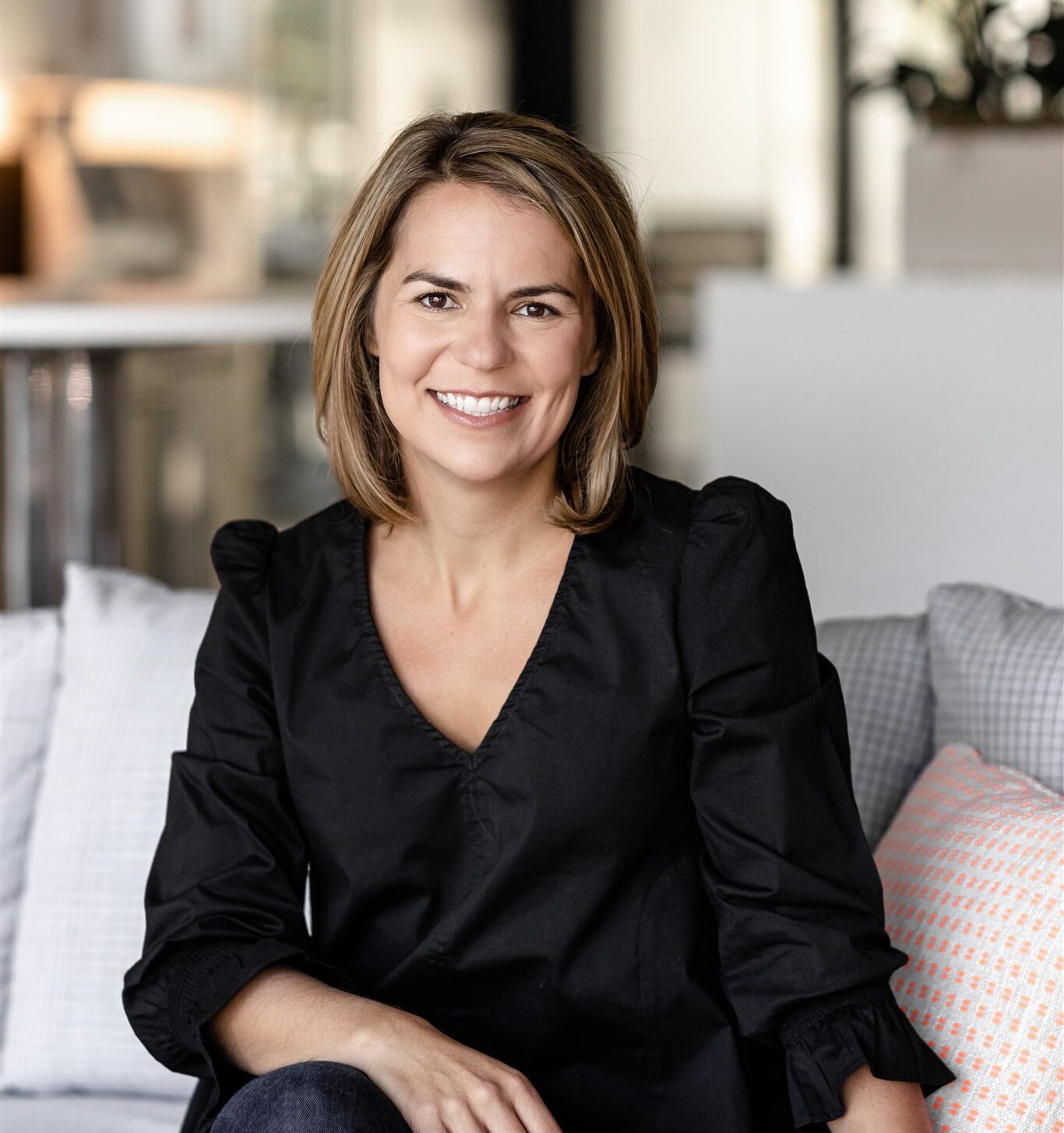
Q: You are a native of Richmond and attended Randolph-Macon College. What is your favorite spot or activity in Richmond?
A: I love the river and some of the trails around Richmond, as I have recently gotten more into hiking. The close proximity to the mountains or beach also makes it easy to find things to do on the weekends. I believe Richmond is a great city to live in based on the market size – it’s easier to find a community and get around town than a larger city, and Richmond is large enough to offer a multitude of things to do.
Q: Who inspired you to become an entrepreneur?
A: I come from a family of small business owners. My grandfather owned a small oil and gas business in rural Virginia, and we were very close. Growing up, I saw and heard firsthand the power and impact of this engine of the economy. I also have an entrepreneurial spirit and love figuring out how to build new things.
Q: Please tell us about your journey to become a CEO.
A: My path was influenced by a combination of large corporate experience and early exposure to small business ownership. My first job out of college was at a Richmond-based Fortune 200 company, where I learned broader business knowledge and how important investments in learning and development are to building leaders. The first business I started was an e-commerce company that sold paper planners. As I evaluated my next move, I had a series of conversations with small business owners that revealed marketing challenges specific to their businesses. This was the genesis for Dotted Line. I started the agency in 2014, and we had our strongest year ever in 2021.
Q: What excites you most about your role as CEO?
A: I’ve learned that Dotted Line’s potential rests on the strength of its people. Growing our team members and leaders is one of my most important jobs as the CEO. At Dotted Line, we focus on developing leaders that our agency will need not only today, but five years from now. We also are at a transformational moment, as the agency just debuted on the Inc. 5000 list of the nation’s fastest-growing private companies. Our momentum and growth are continuing in 2022.
Q: How are you promoting leadership development at Dotted Line?
A: We make a significant investment in our people. For 2022, we launched a year-long Leadership Development program that’s designed to build confident, team-based leaders. This investment – which is rare for both a marketing firm and for an organization of our size – ensures that team members have the shared skills and background to grow into future roles with Dotted Line and beyond. The program is open to everyone at the agency, not just those in existing management roles, because I believe everyone needs fundamental leadership skills – like influencing and having difficult conversations – to be effective in their jobs. We also dedicate a percentage of our budget to coaching, skills-based learning and mentoring opportunities.
Q: Are there any national/business authors that you follow? What is it about them or their message that resonates with you?
A: I’m a big fan of Dave Ramsey. His book and coaching program EntreLeadership has been an exceptional resource for me as a small business owner. Dave focuses on how to be a great leader and grow a successful small business. I have participated in many of his conferences and coaching events over the years.
I am also a big fan of Jesse Itzler, a serial entrepreneur. Jesse leads with high levels of passion and excellence and believes that the more you experience in life, the more you have to give. Jesse encourages people to have one big, impossible goal each year. This is something that stretches you and has a lasting effect on you all year. This year, I’m participating in an ultra-endurance event called 29029 Everesting. We have 36 hours to reach 29029 feet – the equivalent height of Mt. Everest. It’s quite the challenge, and I am looking forward to experiencing something this transformational.
Q: You are very involved in the community, including the National Association of Women Business Owners and being on the board of directors for the Virginia Chamber of Commerce. How has your work with these organizations impacted you as a CEO?
A: Meeting, learning from, and networking other leaders has been formative to me as a business owner and CEO. As a young entrepreneur, I’m learning and leading at the same time. Outside guidance and expertise has been essential.
Q: You joined VACEOs in the height of the pandemic in 2020, what part of your membership has helped you grow the most as a leader?
A: I have loved getting to know and having the support of my roundtable members. Many of our businesses are similar in size, and we have similar aspirational goals. I am learning from them, and the support as a small business owner has been incredibly helpful.
Making the World a Better Place – One Job Seeker At a Time
Member Spotlight: Glenn Diersen, Founder and President of Summit Human Capital
Virginia Born and Bred
Glenn Diersen was born in Virginia and grew up in Richmond’s West End. His parents, traditional baby boomers, modeled an example of finding a good company to work for, working hard, and then retiring from that same company.
But Glenn had different ideas.
Born with what he describes as “entrepreneurial blood” flowing through his veins, Glenn was only 14 when he started his first company painting houses. By the time he graduated from High School in 2009, he had started a second business and had his eye on one day starting a third.
School and Next Steps
After graduating from James Madison University in 2013, with dual degrees in Business Administration and International Business and Spanish, Glenn headed to Spain for approximately a year to polish his international business acumen and achieve his dream of becoming fluent in Spanish. He was successful in both.
On returning to the U.S., Glenn went to work for The Select Group in Washington, D.C., where he spent the next several years learning all he could about the technology recruiting industry, particularly as it relates to the government and staffing contracts.
After successfully building a new, $200 million vertical sales division at The Select Group, Glenn felt the pull to start out on his own. With his future wife, Nina Ildari, by his side, in 2018 he left D.C., returned to Richmond, and together they founded Summit Human Capital where he now serves as founder and president, and Nina is CEO.
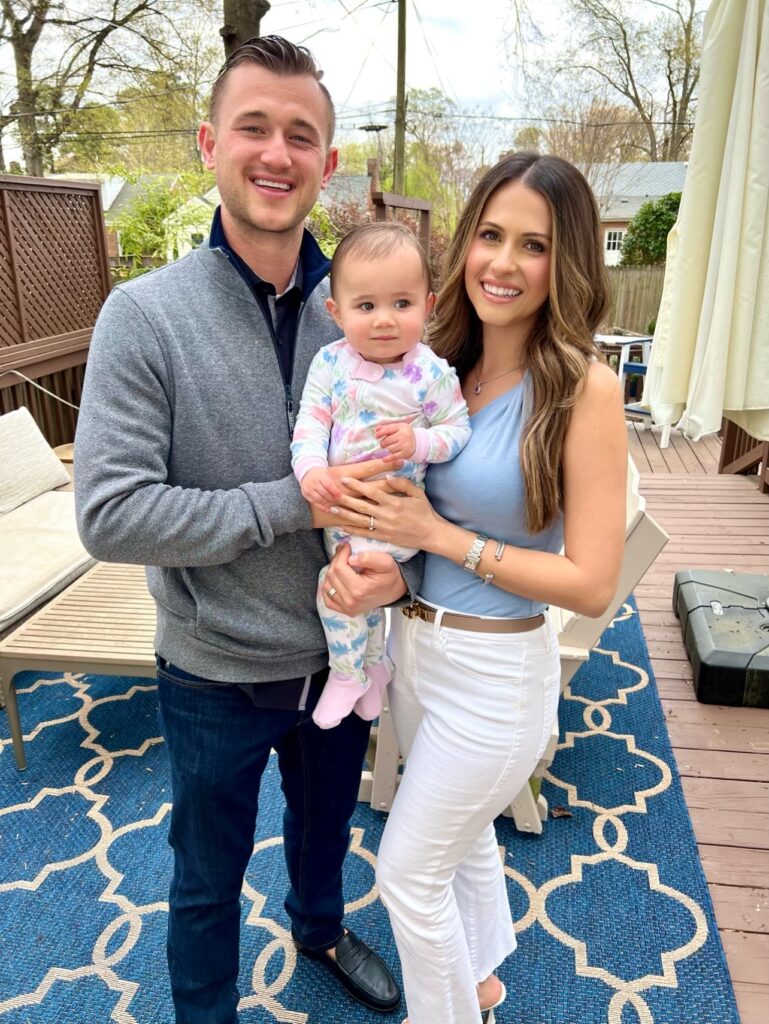
Growing Summit Human Capital
Summit Human Capital is a global technology workforce solutions company which Inc. Magazine recently ranked number one as the fastest growing firm in the Mid-Atlantic region. A newly designated Women Owned Small Business (WOSB), they have two offices, one in Richmond and the other in Northern, Virginia. The company employs over 200 work associates in the U.S. and in India and is on track to double in size within the next year.
Glenn and his wife founded the company with the understanding that traditional job hunting can be a daunting process. To change that narrative, they developed a program to transform the experience from daunting to rich, rewarding and fulfilling for all parties involved – the job seekers themselves and the companies who hire them.
One of the ways Summit Human Capital is successful in doing this is by going the extra mile upfront to help clients identify their short- and long-term career ambitions in addition to their skill sets. At the end of the day, Summit Human Capital does not just help people find jobs. It helps people find jobs that align with their unique talents and goals – the kinds of jobs that have the power to change their lives and the lives of their families – the kinds of jobs that have the power to make the world a better place, one job seeker at a time.
Energy, Vision and Passion
When you speak with Glenn, it becomes immediately clear that he is a high-energy guy, who knows exactly what he wants in life, and has a well thought out plan to get there. He doesn’t leave anything to chance. And even seemingly small details have been thought about by him and leveraged to help him achieve his goals.
For example, Glenn signs each of his communications with the distinct salutation “With Gratitude, Glenn.” Under his photo is a favorite quote by Napoleon Hill: “Your only limitation is the one you set up in your own mind.” And it’s from this unique space of gratitude and limitless possibility that Glenn surrounds himself, both literally and figuratively, and approaches each day.
Covid’s Impact On Business
Glenn is very clear that the pain and suffering COVID has caused all over the world is catastrophic and that his heart goes out to all those who have been hurt by this modern-day plague.
With that said, he adds that a silver lining of the pandemic is that it has dramatically sped up the adaptation of working remotely and the creation of hybrid work environments. Both of which he feels will make society better – and are here to stay.
VACEOs
Like many leaders, Glenn admits that at times it is lonely at the top of an organization. It can feel isolating. For him, the roundtable format has been a god send because it has given him a tribe of trusted peers to support him and help him grow.
His advice to those who are curious about VACEOs but have not joined is simple and straight forward…Don’t wait. Join today. Invest in yourself.

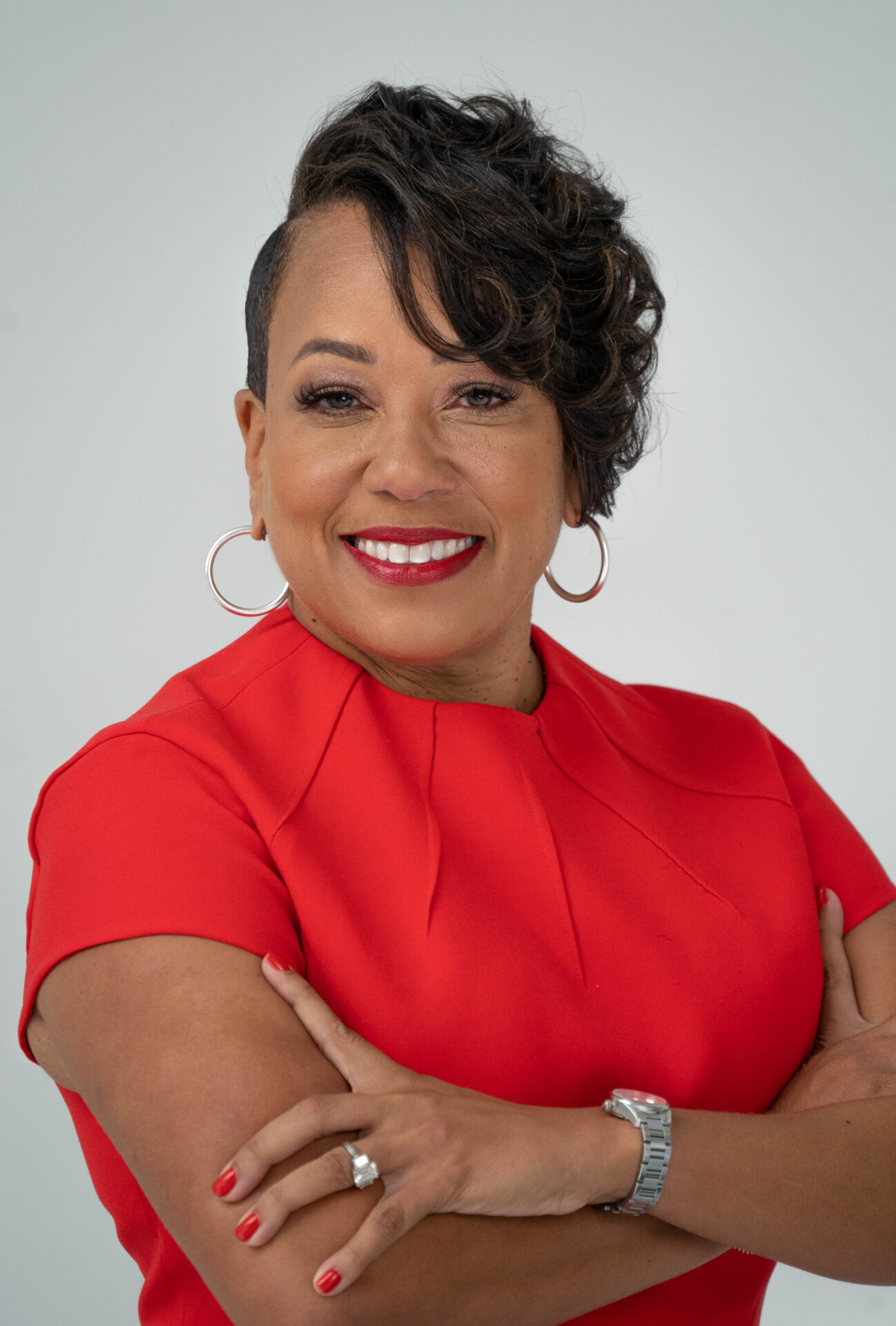
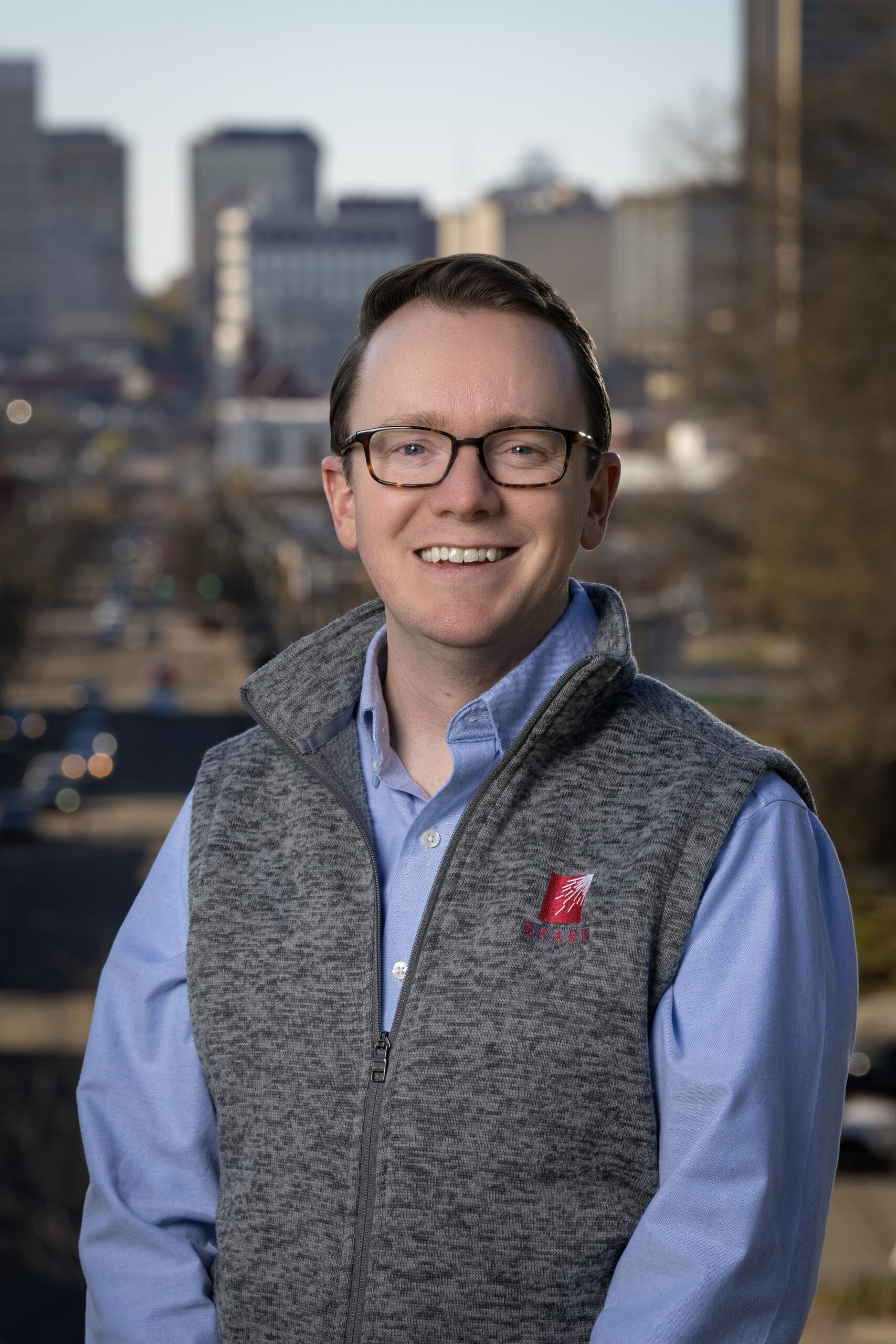
Recent Comments